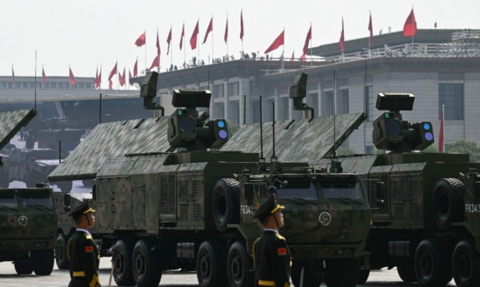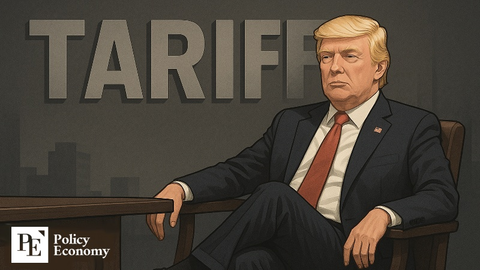Trump Floats U.S. Troop Cuts Abroad While Demanding More From Korea
Input
Changed
Trump: “U.S. Troops Will Remain in Poland, Reductions Considered Elsewhere” Demands Land Ownership for Military Bases as Price for U.S. Presence in Korea Congress Pushes Back on Troop Cuts in Korea, Citing National Interest Review

U.S. President Donald Trump said he intends to maintain American troop deployments in Poland, which spends heavily on defense, but is considering reductions in other countries. The remarks came shortly after last month’s U.S.–Korea summit, where he criticized what he called Seoul’s “free-riding” on security, signaling once again the possibility of troop realignments.
Trump’s ‘Explosive Remarks’
On the 3rd (local time), when asked at the White House whether U.S. forces would remain in Poland during a visit by Polish President Karol Nawrocki, President Donald Trump replied: “If Poland wants, we will station even more troops. We are very much aligned with Poland and share a very special relationship.” The comment was striking given Trump’s usual view of overseas deployments as a “cost,” as it suggested the possibility of an expanded U.S. presence. U.S. forces were first deployed to Poland in 2014 after Russia’s annexation of Crimea, and troop levels increased again following Russia’s 2022 invasion of Ukraine, leaving around 10,000 American soldiers currently stationed there. Trump praised Poland for spending 4.12% of GDP on defense last year—one of the highest among NATO members—and for setting an even higher target of 4.7% this year, calling it “a very good thing.”
He added, “We have never even considered removing troops from Poland, but we are considering it for other countries.” The remarks reaffirmed the administration’s policy of reassessing global troop deployments in light of shifting security conditions. With roughly 28,500 U.S. troops stationed in Korea, Seoul now faces uncertainty over its own security posture. During last month’s summit with President Lee Jae-myung, Trump deflected a question on whether he was considering a reduction of U.S. forces in Korea, saying only, “We are friends, so I don’t want to say that now.”

Trump Presses Korea on ‘Free-Riding’ and Demands Base Land Ownership
During last month’s summit, President Trump unexpectedly demanded ownership of land hosting U.S. military bases in Korea while discussing the previous administration’s Special Measures Agreement (SMA) on defense cost-sharing with President Lee. Although Trump has long accused Seoul of “free-riding” on security, it was the first time he explicitly linked cost-sharing to base ownership.
When asked about the possibility of reducing U.S. Forces Korea (USFK) during his opening remarks, Trump said, “There are more than 40,000 American troops in Korea. During my first term, Korea agreed to pay for their presence, but after Biden came in, they stopped paying, and we gave up billions of dollars.” He added, “We were receiving billions, but Biden ended it for some reason. They (Korea) say, ‘We provided the land to America,’ but I told them, ‘You didn’t give us the land—you leased it to us.’ There is a big difference between giving and leasing.”
Trump went on: “One of the things I want is to ask Korea to give us ownership of the land where we have a great fortress.” He stressed, “Korea has contributed, but we’ve spent a lot of money building these fortifications. I want to know whether we can remove the leases and obtain full ownership of the land.” The remarks suggested that if Seoul refuses to raise its defense contributions, Trump might seek compensation in the form of land ownership—or otherwise consider reducing U.S. troop levels.
U.S. Congress Opposes Troop Cuts in Korea
Whether President Trump can actually move forward with reducing U.S. Forces Korea (USFK) remains uncertain, as Congress has voiced strong opposition to any drawdown. The summary of the 2026 National Defense Authorization Act (NDAA), released by the Senate Armed Services Committee in July, explicitly states that U.S. forces on the Korean Peninsula cannot be reduced, nor can operational control within the Combined Forces Command be altered, unless the Secretary of Defense certifies to Congress that such moves serve the national interest. The bill also requires the Chairman of the Joint Chiefs of Staff, the commander of Indo-Pacific Command, and the commander of USFK to conduct a risk assessment of any potential reductions.
Lawmakers broadly agree that U.S. troop cuts in Korea cannot proceed without a full evaluation of national interest and risks. Representative Mike Rogers (R), who opposed reductions under Trump’s first term, stressed: “Congress must ensure that no one can recklessly withdraw U.S. forces from a region as vital as Korea.” Representative Roger Wicker (R) added: “Reducing our presence on the peninsula without a clear strategic assessment endangers alliances and emboldens adversaries.” Senator Jack Reed (D) echoed the view, noting: “Stability in the Indo-Pacific depends on forward-deployed, reliable U.S. forces—and Korea is central to that strategy.”
Foreign media also assessed that the new law places strict limits on any attempt to scale back U.S. forces in Korea. Reuters wrote that “the provision creates a legal safeguard preventing the administration from pushing through troop reductions or operational control transfers unilaterally.” Politico described the NDAA language as “a legislative barrier against U.S. troop withdrawals from Korea,” pointing out that by requiring congressional approval and independent military assessments, the measure makes such discussions structurally difficult.
Still, some analysts argue that Congress has paradoxically left the door open. A diplomatic expert noted: “Unlike the 2019 NDAA during Trump’s first term, which prohibited use of authorized funds for reducing U.S. troops in Korea, this time there is no such restriction. If the Secretary of Defense certifies it and Congress cooperates, troop reductions could be allowed at any time.”






















Comment